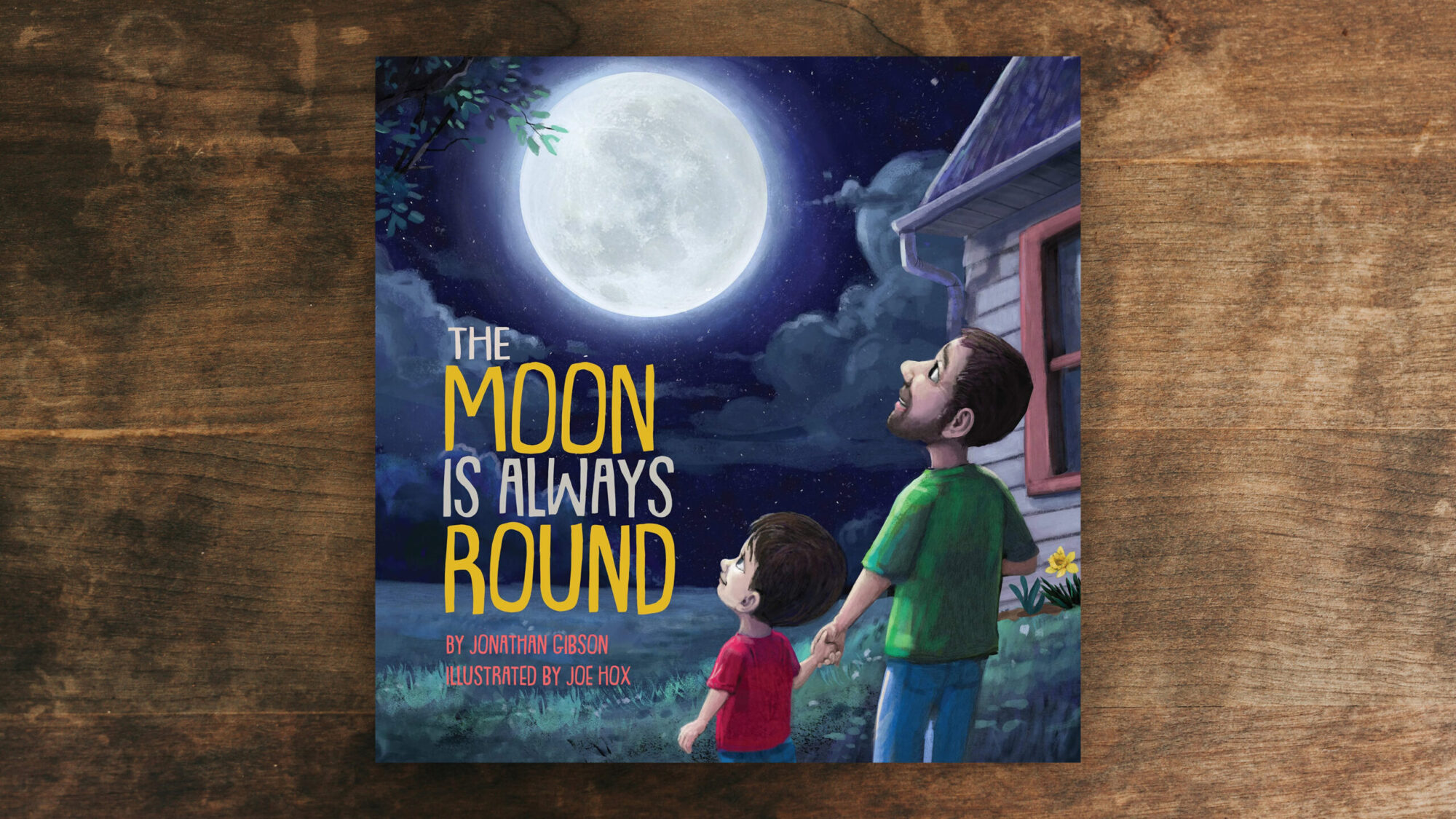The Moon is Always Round
For most of us, the Christmas season is, as the carol tells us, “The most wonderful time of the year.” Shopping for that perfect gift for a loved one. Ornaments of all kinds—homemade, from special places, heirlooms—hung on the tree, bringing memories of Christmases past to mind. Driving through neighborhoods to look at the lights and decorations adorning homes. Sugar cookies, fudge, and popcorn tins. Reading about the birth of Jesus with your family. The sound of Christmas carols filling the home. A table filled with food enough for a feast and plenty of joy and laughter for Christmas Eve dinner. Children opening their presents on Christmas morning.
There are those, however, who experience this time of year very differently. For many in our churches and communities, Christmastime is a reminder of loss, and the joy and celebration of the holidays can magnify their grief. For some, this Christmas will be the first without a loved one. For others, it will be an estranged relationship with someone who hasn’t been home in years. For some, it will be the loss of health or the ability to do what they used to do. Others will be grieving the loss of a job, a dream, or a desire.
Not long ago, I came across a children’s book about loss and grief by Jonathan Gibson. The book’s title, The Moon is Always Round, intrigued me. I read a description of the book on the back cover, and what I read intrigued me even more.
Even young children want answers to the hard questions about God and suffering. In The Moon Is Always Round, seminary professor and author Jonathan Gibson uses the vivid imagery of the moon to explain to children how God’s goodness is always present, even when it might appear to be obscured by upsetting or difficult circumstances.
In the back of the book, Jonathan explains how the inspiration for The Moon is Always Round was a conversation he had with his son Benjamin when he was three years old. One night, Jonathan held his son next to the window, and Benjamin pointed to the moon. “Look. The moon!” he said. It was a crescent moon, and Jonathan explained to his son that the moon appears to have many shapes but is, in fact, always round. From that conversation, they developed a mini-catechism:
Q. Ben, what shape is the moon tonight?
A. The moon is a crescent moon, or a half-moon, or gibbous moon, or a full moon.
Q. What shape is the moon always?
A. The moon is always round.
Q. What does that mean?
A. God is always good.
Sometime later, Benjamin’s younger sister, Leila Judith Grace, died at 39 weeks in her mother’s womb. Four days later, she was stillborn. Benjamin came to the hospital to meet her later that day, held her for a while, and said goodbye to her.
Benjamin didn’t fully understand what had happened when he said goodbye to his sister. So, he asked his father on the drive home, “Why isn’t Leila coming home with us?” “She’s gone to be with Jesus,” Jonathan replied. “Will Leila come to us after that?” Jonathan told his son, “When you meet Jesus, you don’t want to go anywhere else.” Still not fully understanding, Benjamin asked, “Does Leila not like us?” “She does,” Jonathan said, “but she loves Jesus more.” “Then why isn’t she coming home with us?” he asked again. Jonathan replied, “I don’t know why.”
Although stricken with grief over their loss, Jonathan took that moment to remind his son about their conversation about the moon. “What shapes is the moon, Ben?” “The moon is always round,” he replied. “What does that mean?” asked Jonathan. “God is always good,” he said.
That night, Jonathan looked up into the night sky. There was a half-moon, which represented just how he and his wife felt. They couldn’t see the whole of God’s goodness because Leila had died. But they knew the moon was round, even though they could only see part of it.
I can’t remember the last time I was moved to tears by a book. This one had me in puddles. Not just because it dealt with a sad and difficult topic but because it pointed me to the truth that there are sad and terrible things that happen in life that we can’t explain or know why they happen. But instead of trying to explain things or find answers, we can focus on the sovereign, loving character of God. He is always good and kind as the moon is always round, even if it doesn’t look that way when we look at it. In our loss and grief, the truth of God’s goodness can sustain and comfort us.
If you and your family or someone you know is experiencing a season of loss or grief, this book might help put language to what they are feeling or help them remember that, just as the moon is always round, God is always good. He does not leave us alone in our loss and grief. He meets us in our loss and grief. “The Lord is close to the brokenhearted and saves those who are crushed in spirit” (Psalm 34:18).
The Moon is Always Round is available for purchase anywhere books are sold.
Video: Why I Wrote “The Moon is Always Round” by Author Jonathan Gibson


